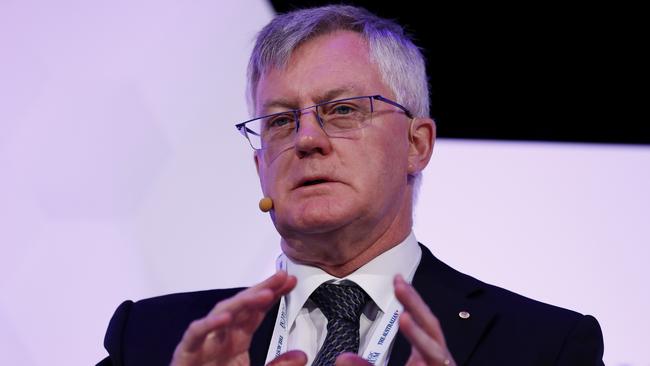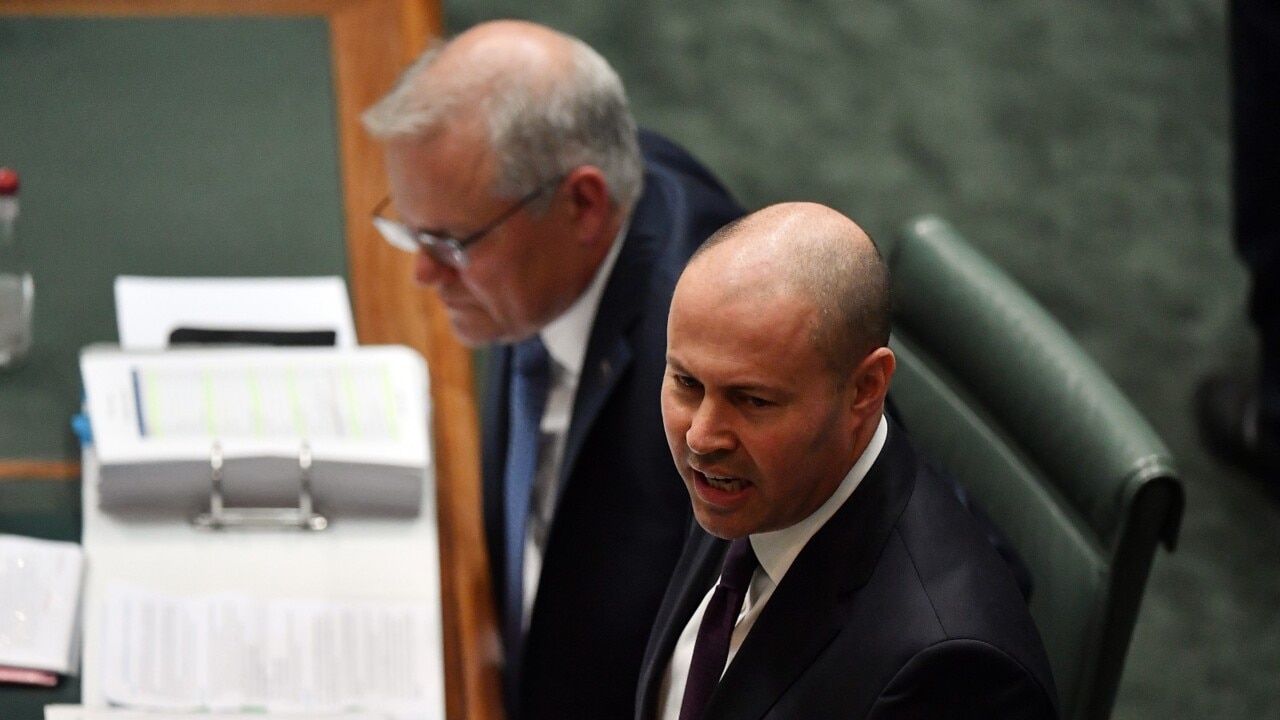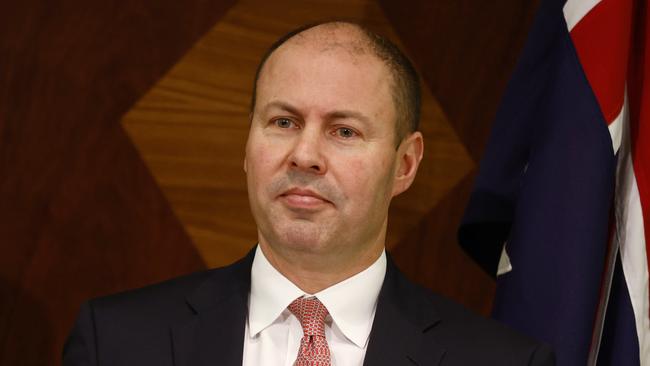Idle on reform, political class stokes fear in the heartland: Parkinson
Australia’s former top mandarin calls for more ambition on carbon targets and an attack on the budget deficit.

One of the country’s most accomplished and respected public servants has lashed the political class for being idle on economic reform during the past decade and for striving to stoke fear for partisan advantage, while also turning international relationships into a tool for domestic political gain.
Martin Parkinson, a former secretary of the departments of Prime Minister and Cabinet and Treasury, said real leadership and courage were needed to educate the public, tackle rising debt and lift living standards.
He also called for more ambition on emissions reduction and improved teacher quality, and warned that whoever wins the next federal election will have to rein in the budget deficit and rebuild fiscal buffers.
“If you have a political class that comes to believe there is no budget constraint – that debt and deficits are not a problem, and they can spend whatever they want – at some point there will be a reckoning,” Dr Parkinson told The Weekend Australian.

His comments come amid a rapid expansion and falling unemployment, fuelled by the Morrison government’s $291bn direct stimulus and near-zero official interest rates, and ahead of Treasury’s latest Intergenerational Report which will outline the budget and demographic projections over the next 40 years.
In an interview, the Macquarie University chancellor lamented that in contrast to the reform era of the 1980s and 90s, when Labor and the Coalition advocated the need for economic and societal transformation, the Morrison government’s message was “we have never had it so good”.
“‘Well, if it is so good,’ the punters think, ‘why isn’t my wage going up? Someone else must be getting my share.’ That has contributed to the erosion of trust in our institutions,” Dr Parkinson said.
“Previously, the political class treated people as adults, and no matter how difficult the issue they explained what problem they were trying to fix, they explained why change was necessary, and they didn’t try to pretend that everyone would automatically be better off. No one now speaks directly to the community. No one makes the effort to educate the community and to bring the public on the reform journey. What they do is try to scare the community, to make them sufficiently nervous so they won’t change parties. Complex challenges can still be tackled, if properly explained. But that takes courage and a vision for our society. What it doesn’t involve is a focus on short-term political advantage at every turn, nor does it involve turning our international relationships into a tool for domestic political gain.”

Dr Parkinson served as Treasury chief during the premierships of Julia Gillard, Kevin Rudd and Tony Abbott, and as head of Prime Minister and Cabinet for Malcolm Turnbull and Scott Morrison, before retiring in August 2019. He was also secretary of the then Climate Change department for more than three years from late 2007.
With Mr Morrison attending a G7 summit in Britain, where he will have a bilateral meeting with US President Joe Biden, Dr Parkinson urged a holistic approach to policies that affect business, including a more ambitious carbon reduction commitment than our Paris target of 26-28 per cent below 2005 levels by 2030.
“It is not enough to have growth, it has to be sustainable growth,” he said. “So, our environmental priorities and emissions targets need to be discussed with the public in a sensible, open fashion. For example, if we will meet our Paris target ‘in a canter’ this presumably means we could be more ambitious at no more cost to the economy than when the target was set.
“And doing so would accelerate our push into improved energy efficiency and new industries, helping restrain power prices, reduce emissions and deliver new jobs and opportunities.
“The focus needs to be on a ‘just transition’, rather than the situation now where some pretend we can instantly move to a net-zero emissions world while others say we will never get there if it involves losing one job anywhere in the economy.”
As well, Dr Parkinson said a “big challenge is to improve the quality of our education system”.
“We have spent so much money on education and yet we continue to slide down in the PISA rankings … We need to improve the quality and access of early childhood education, preschool and primary. We need to improve the quality of teaching. This is no quick fix for productivity, but this is an absolutely vital reform area.”
He said the Morrison government had two economic tasks through the pandemic recession. “One, get us through the immediate economic consequences of the crisis. A big tick. The government has done really well and is right to maintain fiscal stimulus over the next year or two,” he said.
“Two, having spent 15 per cent of GDP on direct stimulus, are we now in a better position to handle the long-term challenges that already existed before Covid? Arguably, they have not (done well).
“The budget was an opportunity for a mix of short-term and long-term measures, and it’s the long term that’s missing.”








To join the conversation, please log in. Don't have an account? Register
Join the conversation, you are commenting as Logout